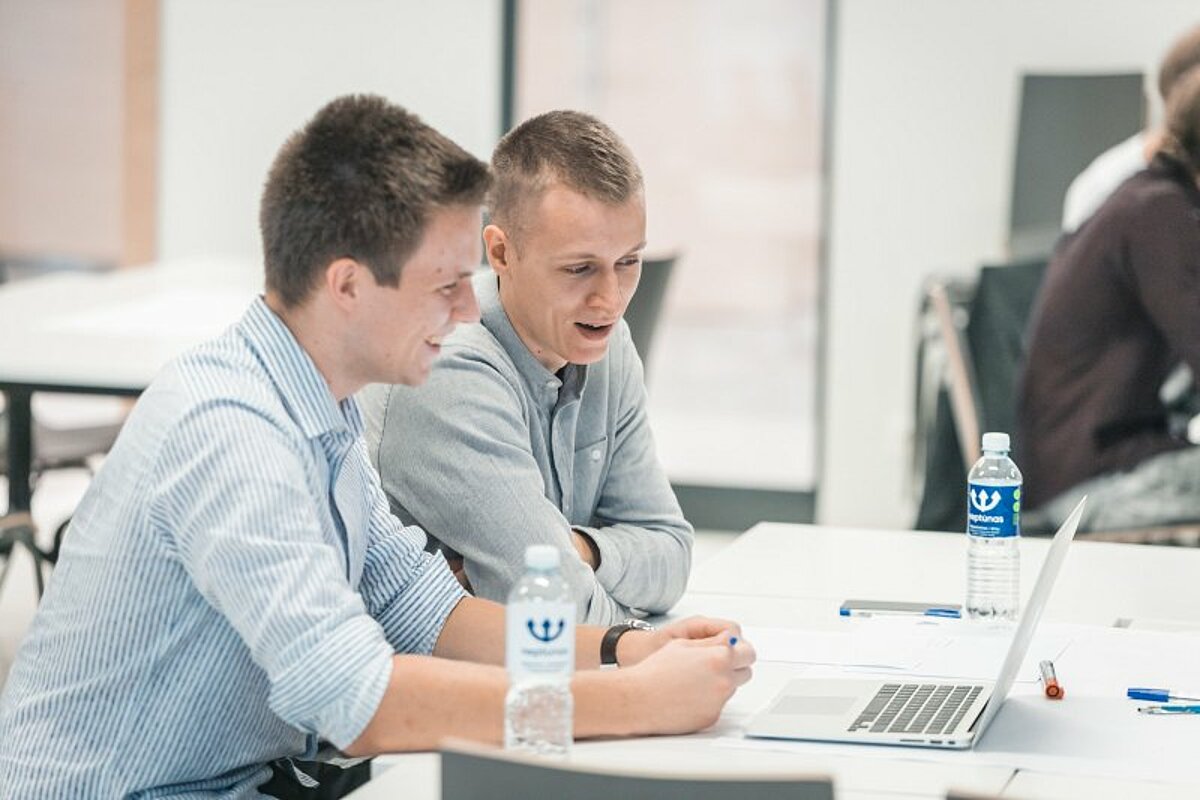
At this project stage, educational events will take place not only for students. The University of Latvia will also become a center for the development of media literacy for other groups of society. In the spring of 2022, a digital collection of media literacy tasks created by the teaching staff and graduate-level students of the University of Latvia will reach teachers in order to provide practical support for the inclusion of media literacy in the curriculum in accordance with the new educational standard. Discussion and creation of the material on the place and role of media literacy in the operation of memory institutions are also planned.
If the epidemiological situation allows, the creation of a media literacy breakout room based on the concept created by the University of Washington is also planned. "The writing of the project coincided with my time at the University of Washington in August as part of the Distinguished Humphrey Fellowship programme, deepening my knowledge of media and media literacy. So I incorporated several ideas into the project, inspired by the American experience after seeing how successful they work. One of them is a breakout room dedicated to media literacy. It does not need a constant space at all, because as a participant, I saw for myself how in half an hour with posters, hidden "threads" and other materials it can be arranged in almost any auditorium with a table and chairs. It is very challenging, but we will try to create it at the University of Latvia as well, allowing several hundreds of our students to improve their media literacy skills in a breakout session led by media literacy specialists," says Klinta Ločmele, Head of IREX Baltic Media Literacy Programme at the University of Latvia.
The cooperation between IREX and the University of Latvia started in 2020 in the first phase of the project. The range of study courses at the University of Latvia was supplemented by two new study courses – "Journalism in the Era of Disinformation" and "Media Literacy Fundamentals for Information Specialists", which are also taking place this academic year. Media literacy summer studies "Three Stories of Media Literacy" and winter excellence studies "(Post)Pandemic Media Literacy" gained the interest of the students. For example, winter excellence studies attracted 50 students from nine study programmes of the University of Latvia a year ago.
Questionnaires of students before and after media literacy studies show a significant percentage increase in the number of students checking information, and students' confidence in recognizing misinformation and disinformation has also increased. 96% of students also indicate that they share their knowledge of media literacy and fact-checking techniques with their family and friends, on average – 1 student with 8 other members of society.
Projects developed by students as media literacy ambassadors are also an important part of the media literacy programme. For example, the "Info-demic" (Info-Dēmija) project, originally created as homework by communication science students, grew into a 30-episode show which was aired on Radio NABA and is also available on Spotify.

 CONFERENCE
CONFERENCE